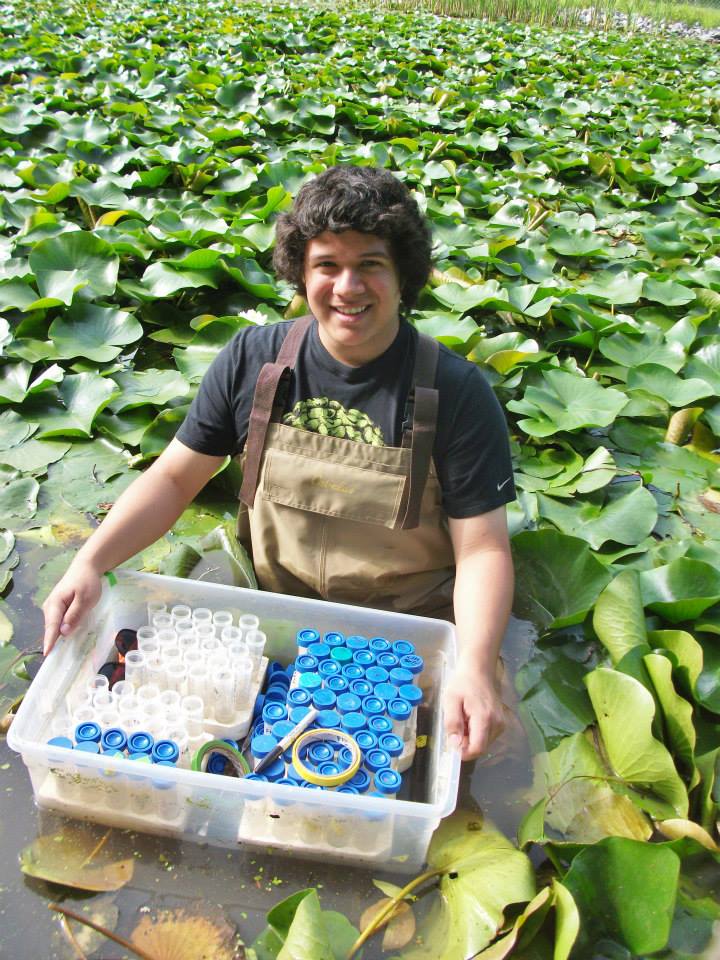 At Virginia Tech, David Vasquez has worked in Dr. Dana Hawley's Infectious Disease Ecology for 2.5 years contributing to a project which examines how social dominance in house finches (Haemorhous mexicanus) can alter the spread of a pathogen (Mycoplasma gallisepticum) on bird feeders. According to David, "it is important to understand how social behavior can influence disease transmission within a social network because one individual can have a high contact rate within a network and infect many people through their behaviors. This is what we call a "super-spreader" and we don't currently have a good idea of what characteristics can attribute to an individual to being a "super-spreader" in the wild."
At Virginia Tech, David Vasquez has worked in Dr. Dana Hawley's Infectious Disease Ecology for 2.5 years contributing to a project which examines how social dominance in house finches (Haemorhous mexicanus) can alter the spread of a pathogen (Mycoplasma gallisepticum) on bird feeders. According to David, "it is important to understand how social behavior can influence disease transmission within a social network because one individual can have a high contact rate within a network and infect many people through their behaviors. This is what we call a "super-spreader" and we don't currently have a good idea of what characteristics can attribute to an individual to being a "super-spreader" in the wild."
"We placed 5 birds of the same sex in a cage, recorded dominance interactions for 3 hours to determine who was most dominant and subordinate in the flock, then inoculated each individual with one of two different dyed microspheres," explained David. After swabbing for microspheres at 6 hours and 30 hours, they found that "dominant birds, on average, deposited more microspheres onto the bird feeder than subordinate birds and drive disease of the pathogen if infected."
At the University of Georgia, David worked with Dr. Andy Davis through the Population Biology of Infectious Disease REU, examining the effects of a naturally occurring internal nematode parasite (Chondronema Passali) on fighting success of Bess Beetles. They collected beetles from the wild, paired them based on weight, recorded fighting behaviors and aggression, determined parasite status, and analyzed the results. They found that the parasite reduces the fighting success of infected beetles; healthy beetles were more likely to win. David recently presented this research at the National Conference of Undergraduate Research in Spokane, Washington and in April 2015 this work was published in PLoS ONE.
A few of David's many accomplishments are listed below:
- 2015 Buikema Outstanding Senior Researcher Award
- 2015 2nd Place Oral Presentation Award at the 8th Annual LSAMP Conference at GMU
- 2015 Animal Behavior Society Charles H. Turner Travel Award
- 2014 Robert Jones Undergraduate Research Excellence Award
